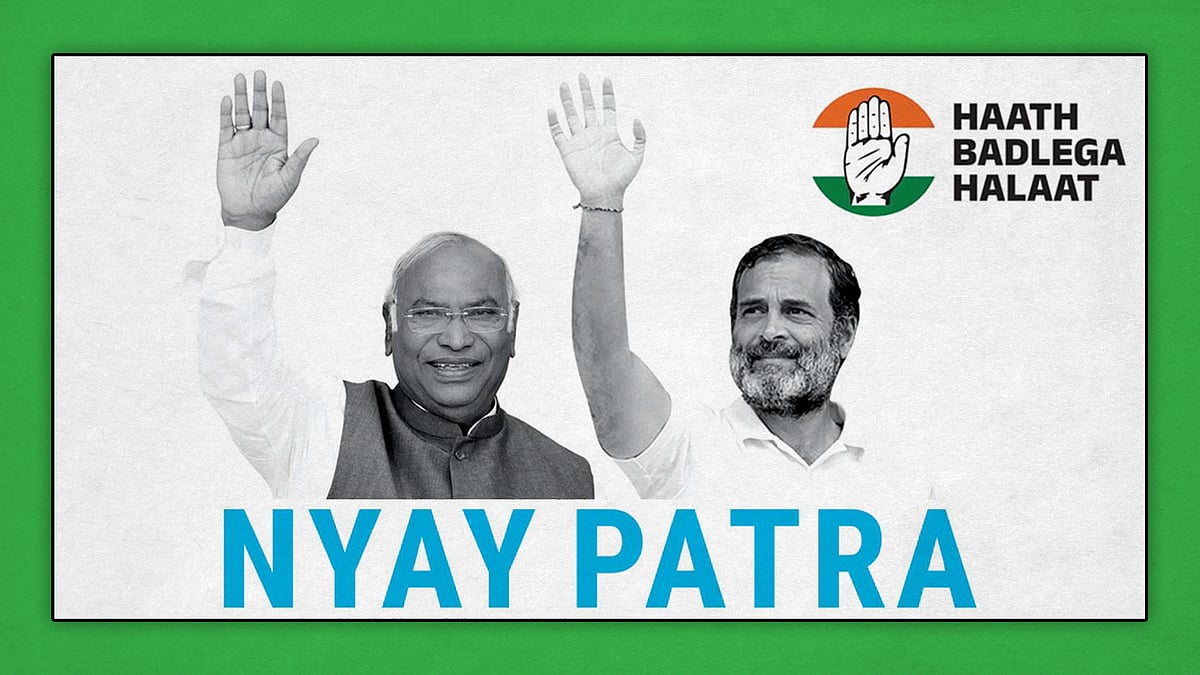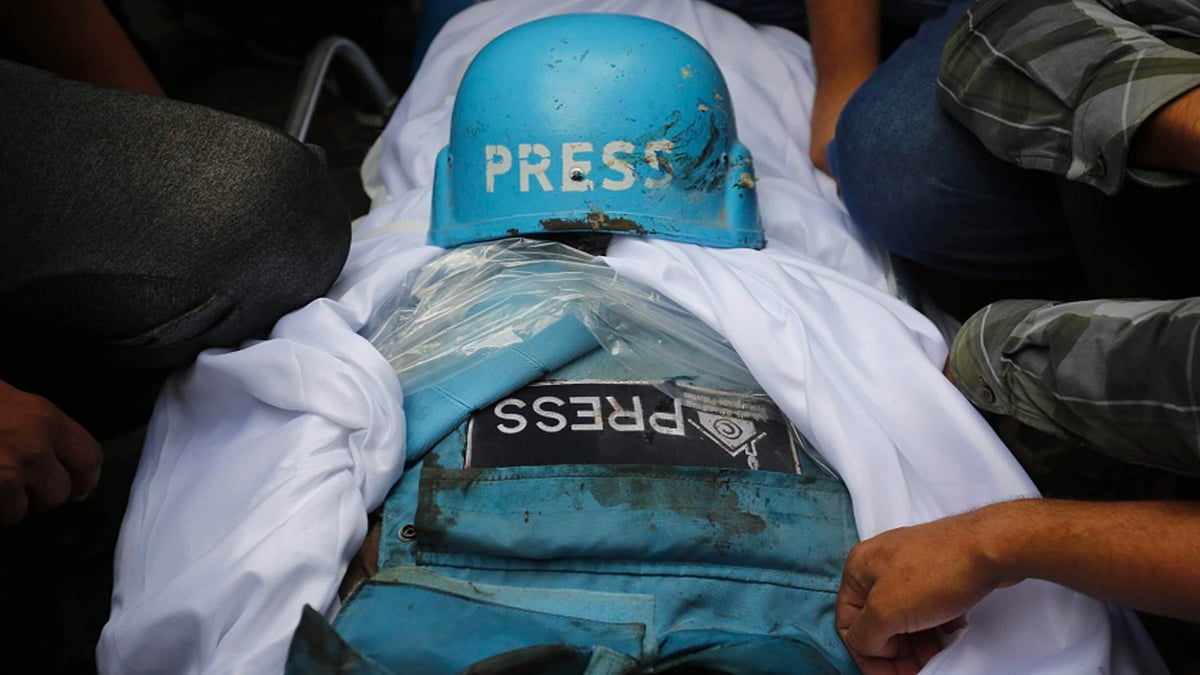World Press Freedom Index: India’s improved ranking and the Palestine puzzle
Countries ranked higher than India include Pakistan, Turkey and Palestine. RSF says some improvements are ‘misleading’.
India ranked 159, two spots higher than last year, in the 2024 edition of the Press Freedom Index, published annually by Reporters Without Borders. It’s behind Turkey, Pakistan and Sri Lanka, which are ranked at positions 158, 152, and 150, respectively.
Notably, Palestine has dropped just one rank from 156 to 157, despite a months-long Israeli offensive that has ostensibly left the highest number of journalists dead in any conflict in this decade. While Palestinian authorities estimate the death toll to be at least 140, the Committee to Protect Journalists pegs it at around 90.
The RSF’s ranking is based on five indicators: political context, legal framework, economic context, sociocultural context and safety of journalists.
The Palestine puzzle, and RSF accused of political pressure
It may appear to be puzzling how Palestine has changed just one rank, faring better than 22 countries, including Turkey, Bangladesh, UAE, India, and Russia. Considering that in 2023, more than three-quarters of the journalists and media workers killed worldwide died in the Israel-Gaza war, the majority of them Palestinians killed in Israeli attacks on Gaza.
Titled “Asia-Pacific: press freedom under yoke of authoritarian governments”, the RSF’s report said some countries’ rise in the index was “misleading as they were the result of falls by countries previously above them”.
The RSF said the index is based on a score ranging from “0 to 100 that is assigned to each country or territory, with 100 being the best possible score (the highest possible level of press freedom) and 0 the worst”. This score, it said, is calculated on the basis of two components: a quantitative tally of abuses against media and journalists in connection with their work, and a qualitative analysis of the situation in each country or territory based on the responses of press freedom specialists (including journalists, researchers, academics and human rights defenders) to an RSF questionnaire available in 24 languages.
Palestine’s ranking comes despite the RSF noting that “Palestine (157th), the most dangerous country for reporters, is paying a high price. The Israel Defence Forces (IDF) have so far killed more than 100 journalists in Gaza, including at least 22 in the course of their work. Since the start of the war, Israel (101st) has been trying to suppress the reporting coming out of the besieged enclave while disinformation infiltrates its own media ecosystem. Overtaken by Qatar (84th), Israel has lost its number 1 position in the region and the classification of its press freedom situation has gone from “problematic” to “difficult”. The IDF also killed three journalists in Lebanon (140th).”
Interestingly, Palestine has seen just a 6-point change in its overall score – from 37.86 in 2023 to 31.92 this year.
The RSF also noted that “at the international level, this year is notable for a clear lack of political will on the part of the international community to enforce the principles of protection of journalists, especially UN Security Council Resolution 2222. The war in Gaza has been marked by a record number of violations against journalists and the media since October 2023. More than 100 Palestinian reporters have been killed by the Israel Defence Forces, including at least 22 in the course of their work.”
However, the answer to the puzzling Palestine ranking may lie in the RSF’s position on what it counts as journalist deaths.
The RSF notes that only 12 journalists have been killed in Palestine this year. “Journalists are listed only if RSF has established that their death or imprisonment was linked to their journalistic activity. The list does not include journalists who were killed or imprisoned for reasons unrelated to their work or when the link to their work has not yet been confirmed,” it said.
In a statement issued in December last year, the Palestinian Journalists' Syndicate criticised RSF after the publication of the annual Round-Up of violence and abuses against journalists worldwide. The round-up reported that, of a total of 56 journalists killed in the Gaza Strip as of that date, at least 13 were killed in the course of their work or because of it.
In its press release, the union, which does not distinguish between the number killed in the line of duty and the overall number killed, accused RSF of “whitewashing the image of the occupation” of “shielding Israel from any responsibility before international justice”, of “bias in favour of the occupation” and of “lack of professionalism.”
However, the RSF had termed it an “inane” accusation.
“At this tragic time for Palestinian journalists, we are convinced of the important role that the Palestinian Journalists' Syndicate is playing alongside colleagues in the field. Our organisation will be at its side as much as we can, defending the right to information. Nonetheless, we do not want to leave unanswered serious and inane accusations that damage our organisation’s image at a time when our team is doing everything possible to help Palestinian journalists. These accusations indicate, at best, a misunderstanding of RSF positions. These attempts to impugn our motives and these quarrels over numbers make no sense,” it had said.
India figures ‘unworthy of a democracy’
The RSF said that India’s rank was “pushed up two places despite recently adopting more draconian laws” and is still “unworthy of a democracy”.
Published on World Press Freedom Day, the RSF report said press freedom around the world “is being threatened by the very people who should be its guarantors – political authorities”.
The press freedom situation has worsened in the Asia-Pacific region, said the RSF, highlighting that 26 of the 32 countries and territories saw their scores fall in the 2024 World Press Freedom Index. “The region’s dictatorial governments have been tightening their hold over news and information with increasing vigour.”
Meanwhile, the three Asian countries at the bottom of last year’s index – Vietnam, China and North Korea – ceded their positions to Afghanistan, Syria and Eritrea. “The last two countries are lawless zones for the media, with record numbers of journalists detained, disappeared or held hostage”, the report noted.
This year, China ranked 172, Vietnam was at 175, and North Korea at 175. Among other Asian countries, Bangladesh was ranked at 165, Hong Kong was at 135, Cambodia at 151 and Philippines at 134, “which continues to be one of the region’s most dangerous countries for media professionals”.
In 2022, replying to a question in the Rajya Sabha, Information and Broadcasting Minister Anurag Thakur spoke about why the government differed on the index. “The government does not subscribe to its (RSF) views and country rankings and does not agree to the conclusions drawn by this organisation for various reasons including very low sample size, little or no weightage to fundamentals of democracy, adoption of a methodology which is questionable and non-transparent, etc” he had said.
There’s no better time to underline the importance of a free press. On World Press Freedom Day 2024, power the independent media.
 Manifesto 2024: Congress vows to withdraw broadcast bill, introduce new laws to ‘restore’ press freedom
Manifesto 2024: Congress vows to withdraw broadcast bill, introduce new laws to ‘restore’ press freedom 122 deaths and counting: Despite ICC, ICJ cases, little hope for press freedom in Gaza
122 deaths and counting: Despite ICC, ICJ cases, little hope for press freedom in Gaza